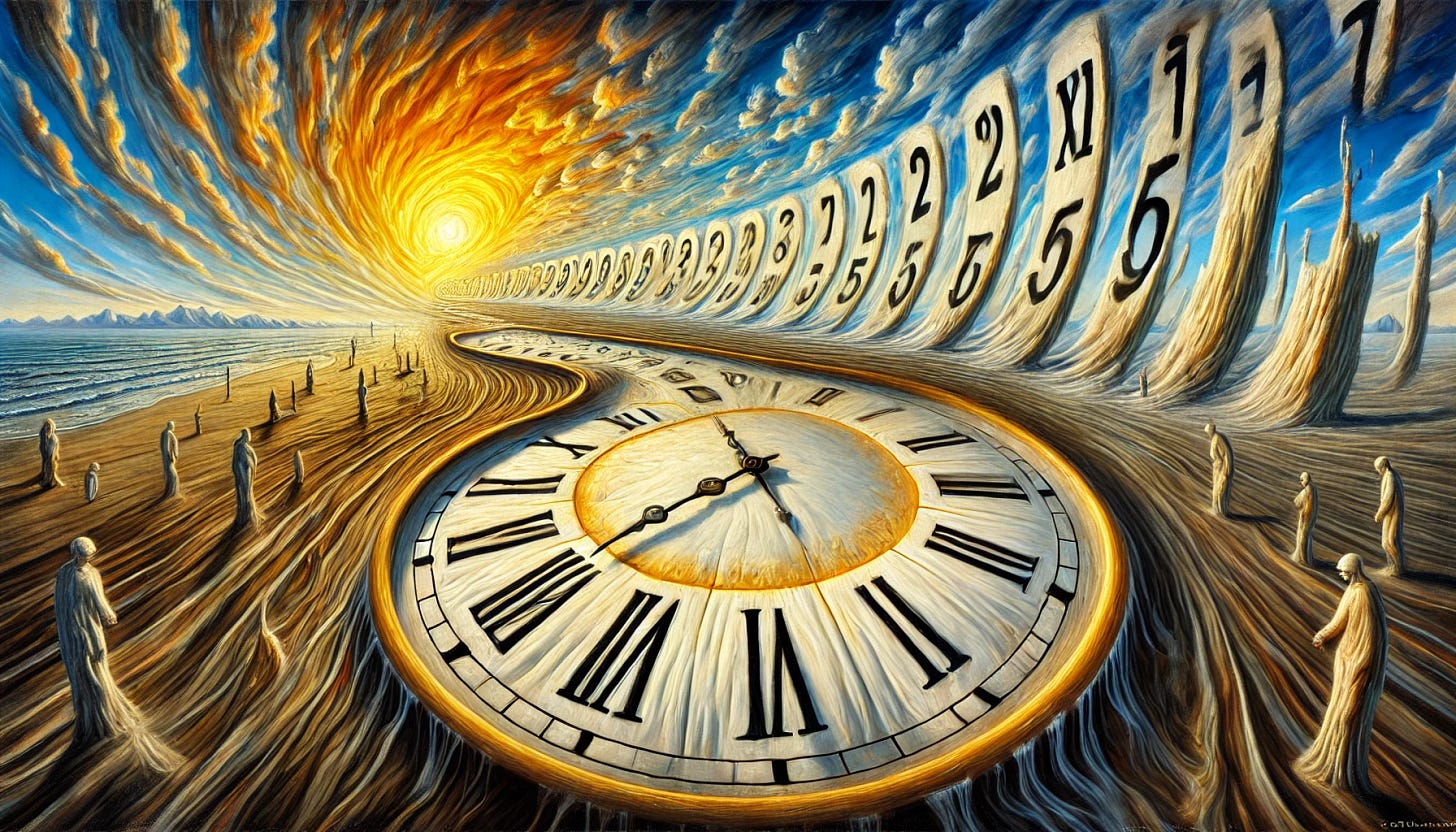Studying creativity and the creative process, you’ll find that novelty is a central theme. Creative work demands you see the world in near infinite new ways. Creativity involves novel approaches, fresh perspective, new frames and ideas. Novelty is required… in the problems you select, in the ideas you gather, in the solutions you generate, in the honing of your work.
Yesterday I listened to a podcast with Hugh Montgomery (British professor of medicine and author). He said something really interesting. It was about how we experience time as we grow older. There is a prevailing view - quite logical really - that as we age each new unit of time experienced is a smaller and smaller fraction of the time we have experienced over our cumulatively growing lifetimes. A one-year old experiences a month as an eternity - this is one-twelfth of their entire lives. A 42yo experiences the upcoming one month period as roughly one-five-hundredth of their life. And so on. And the older you get, the smaller that month as a proportion of your total life.
This theory sounds imminently plausible but Montgomery offers a different view.
It’s not actually about time, it’s about learning and surprise. It’s the time engaged in novel, playful, or creative work. It just so happens that the amount of learning we do is correlated with age. Most people stop learning and experiencing new things as they settle in their lives (same work, same people, same days over and over again). Our sensation of time, according to Montgomery, it is actually about novelty. The baby, and young child, keeps seeing the world in new ways. New sights, new ideas, new models of the world. This constant learning (exploration and discovery, assimilation and processing) is why time passes slower.
My title is misleading. It is not just pure surprise that will extend your experience of life but engagement with novel experiences, work and ideas. This is why one week travelling in a very foreign country can feel like months. You are constantly seeing new things. Your brain must stop time-keeping and apply itself to the new sights, smells, norms, and challenges. The first week of a new job feels orders of magnitude longer than a week in that same job ten years down the line.
When we let our creative brains stagnate, we let our lives fly by. This gels perfectly with deep intuitions I hold about the importance of creative work, and the fine balance between novelty and normalcy in the good life. Creative work puts you in flow state where the novelty and challenge of your daily tasks alter your very consciousness. So creative work not only improves your life but also extends it. Or at least your experience of time, which is the same thing.
By seeking new ideas and problems, and engaging fully - you are injecting novelty in your life. Your days feel fuller, routines break, and your experience of time (and thus life) changes in powerful ways.
“We don't stop playing because we grow old; we grow old because we stop playing.”
―George Bernard Shaw


